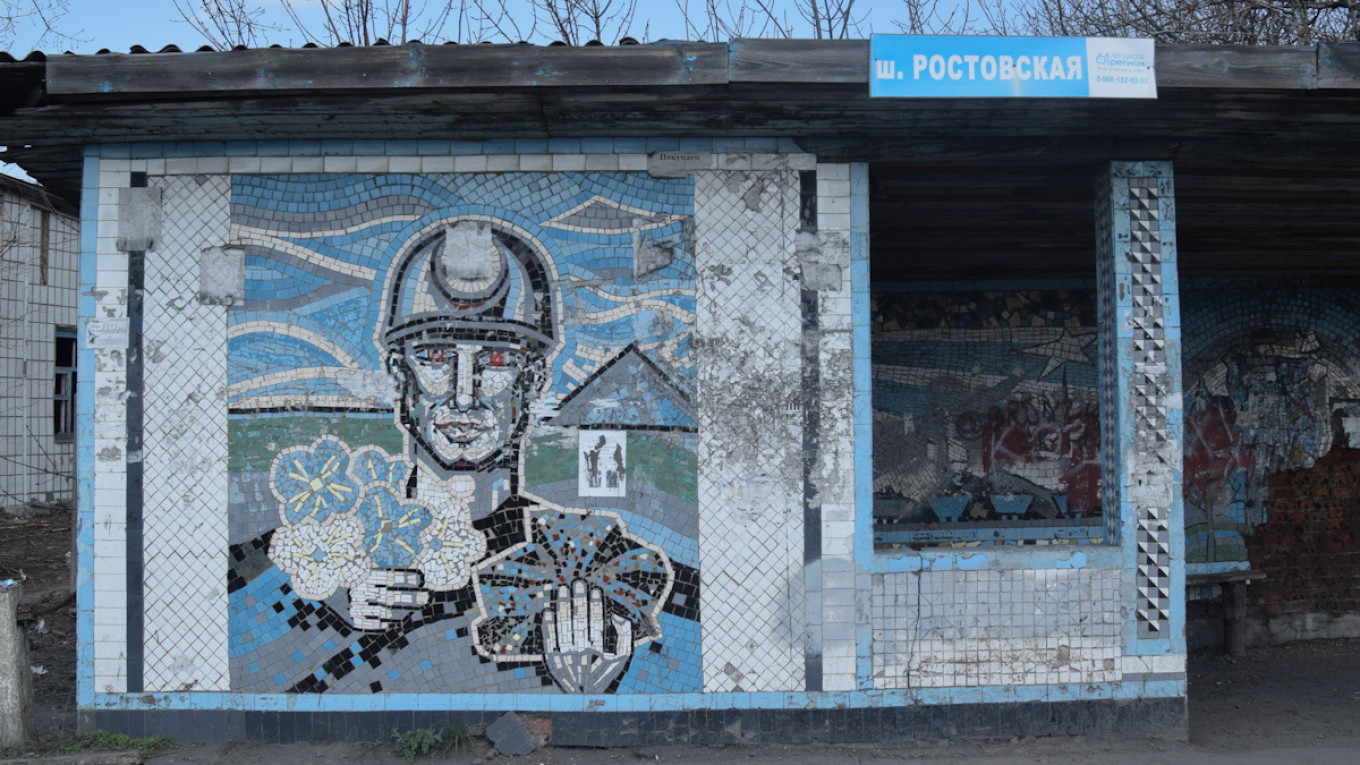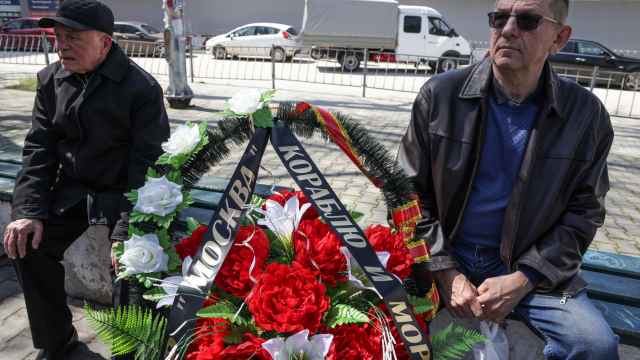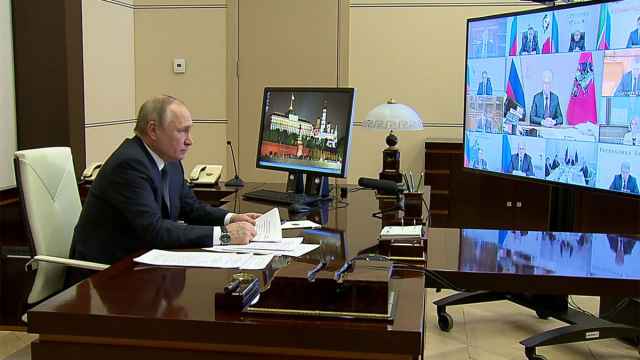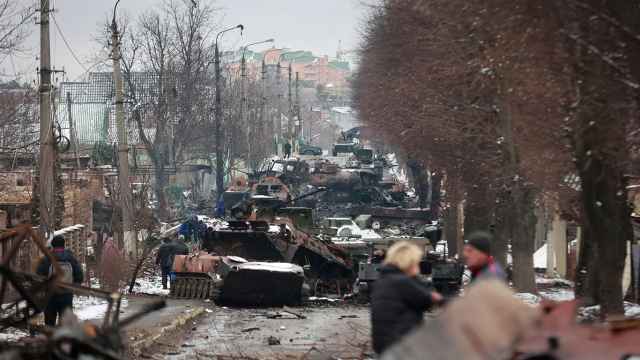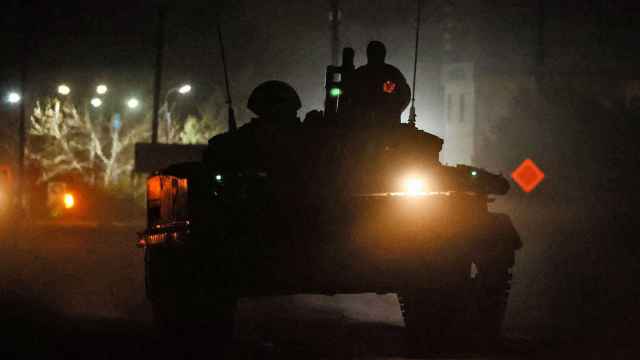GUKOVO, Russia — Residents of this mining town bordering eastern Ukraine felt a sense of deja-vu this month when dozens of military convoys and rocket launchers sped along the highway that skirts the settlement.
“It’s starting again, isn’t it?” said Tatyana Grodzeva, 43, who runs a small grocery store overlooking Gukovo’s imposing but largely empty central square that sits three miles from the separatist-controlled Donetsk People’s Republic.
The military trucks that rumbled past — footage of which was uploaded online and confirmed as authentic by the Russia-based group of military bloggers known as Conflict Intelligence Team — were part of the largest concentration of Russian troops on its border with Ukraine since the conflict in eastern Ukraine first erupted in 2014.
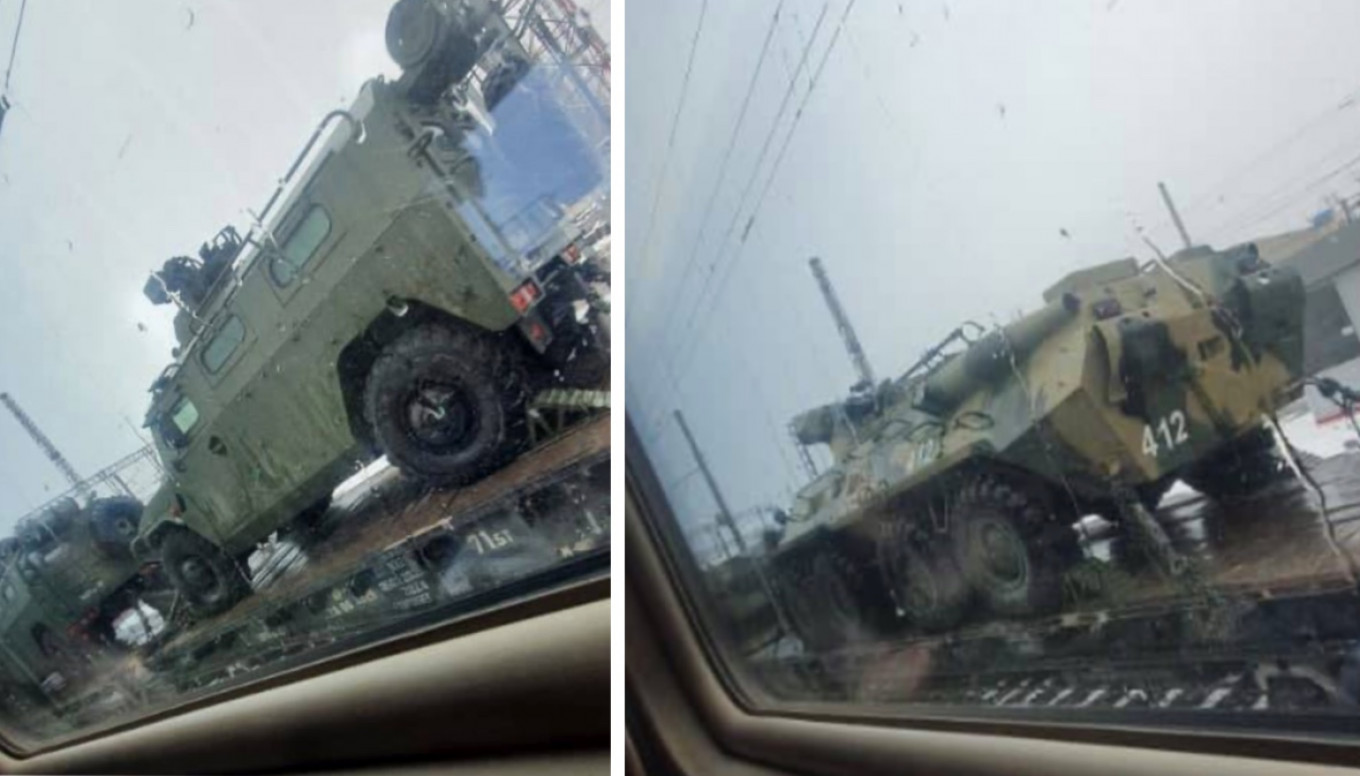
Ukrainian President Volodymyr Zelenskiy's spokeswoman said on April 12 that Russia now has 41,000 troops on Ukraine's eastern border and 42,000 on the Crimean peninsula. Russian Defence Minister Sergei Shoigu responded that the military buildup in the west was part of drills that would last two weeks amid what he described as threats from NATO.
“Please, let’s not have another war. It was a mess here last time,” Grodzeva added while setting up her shop for the day.
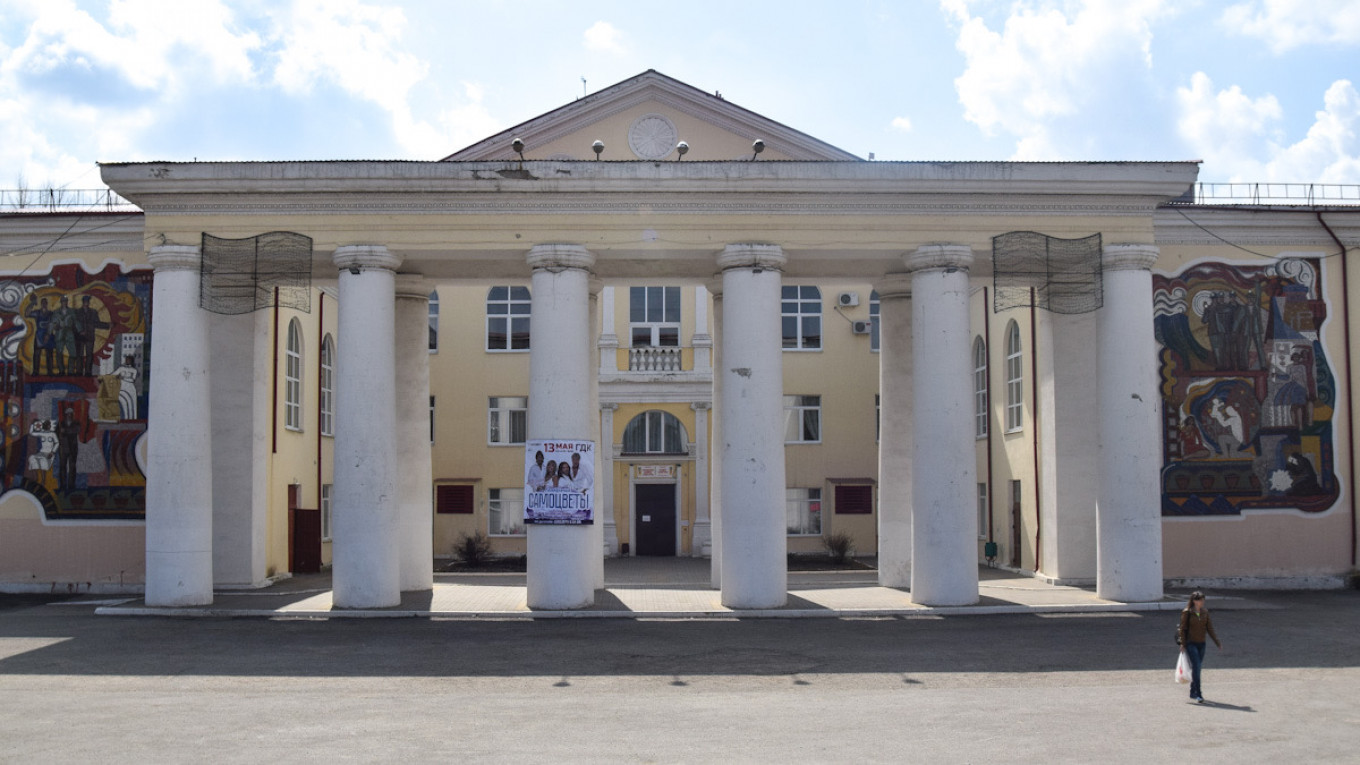
In the summer of 2014, Gukovo, a town of just over 60,000 people in Russia’s southern Rostov region, grabbed international attention when videos uploaded by local residents to social media showed rocket salvos being fired from the town into eastern Ukraine, where a bloody conflict was raging.
The town was also one of the few Russian territories hit by stray missiles when it later welcomed thousands of refugees from Donetsk and nearby towns.
Gordzeva, like other locals The Moscow Times spoke to, stressed that the military buildup they have seen so far, which includes heavy army vehicles placed on nearby train tracks, is minor compared with 2014.
Indeed, satellite images have shown the biggest chunk of Russian troops concentrating in a new army camp in the Voronezh region, 500 kilometers north of Gukovo.
For the residents of Gukovo, the overwhelming source of frustration is the feeling that the reignition of the conflict next door would worsen economic hardship in a region already hammered by the collapse of the coal mining industry and the first war.
“So there’s a military buildup, but we have no work. Have you seen our roads? It’s never been this bad,” said Oleg Visurkin, who owns a local garage.
“We don’t really have time to think about war at the moment,” he added.
Gukovo grew up around its vast coal deposits. Mining started here before the 1917 revolution and flourished during the Soviet period. Socialist-realist murals bearing idealized images of miners still adorn walls all over town.
The many mines were originally state-owned, but their numbers fell when they were privatized in the 2000s. Due to a combination of mismanagement, the financial crisis of 2008 and increasing extraction costs, by 2014 only six of the 64 mines in the whole of the Rostov region had survived.
The 2014 war in eastern Ukraine further complicated the situation.
At first, after having lost control of parts of the Donbass, it’s own coal-mining heartland, Ukraine was forced to increase its import of coal from the bordering Rostov region.
However, in 2019, after multiple spats, both Russia and Ukraine introduced import tariffs, halving Rostov’s exports to Ukraine. Europe too has cut its imports of coal over environmental concerns.
As a result, only one of Gukovo’s four mines has survived, leading to mass unemployment and a declining population. A recent survey ranked the town as one of Russia’s most difficult to live in, and in 2017 it was rocked by miners’ protests over delayed wages.
In efforts to revive mining towns like Gukovo, Russia’s Prime Minister Mikhail Mishustin vowed to heavily invest in the Rostov region.
But the Kremlin appears to have shifted its focus and money to the east of the country after Putin said he hoped the country’s large coal basins in Siberia and the Far East would increase their exports of coal to China — the world’s number one consumer — after Beijing slapped tariffs on Australian imports amid a growing trade rift.
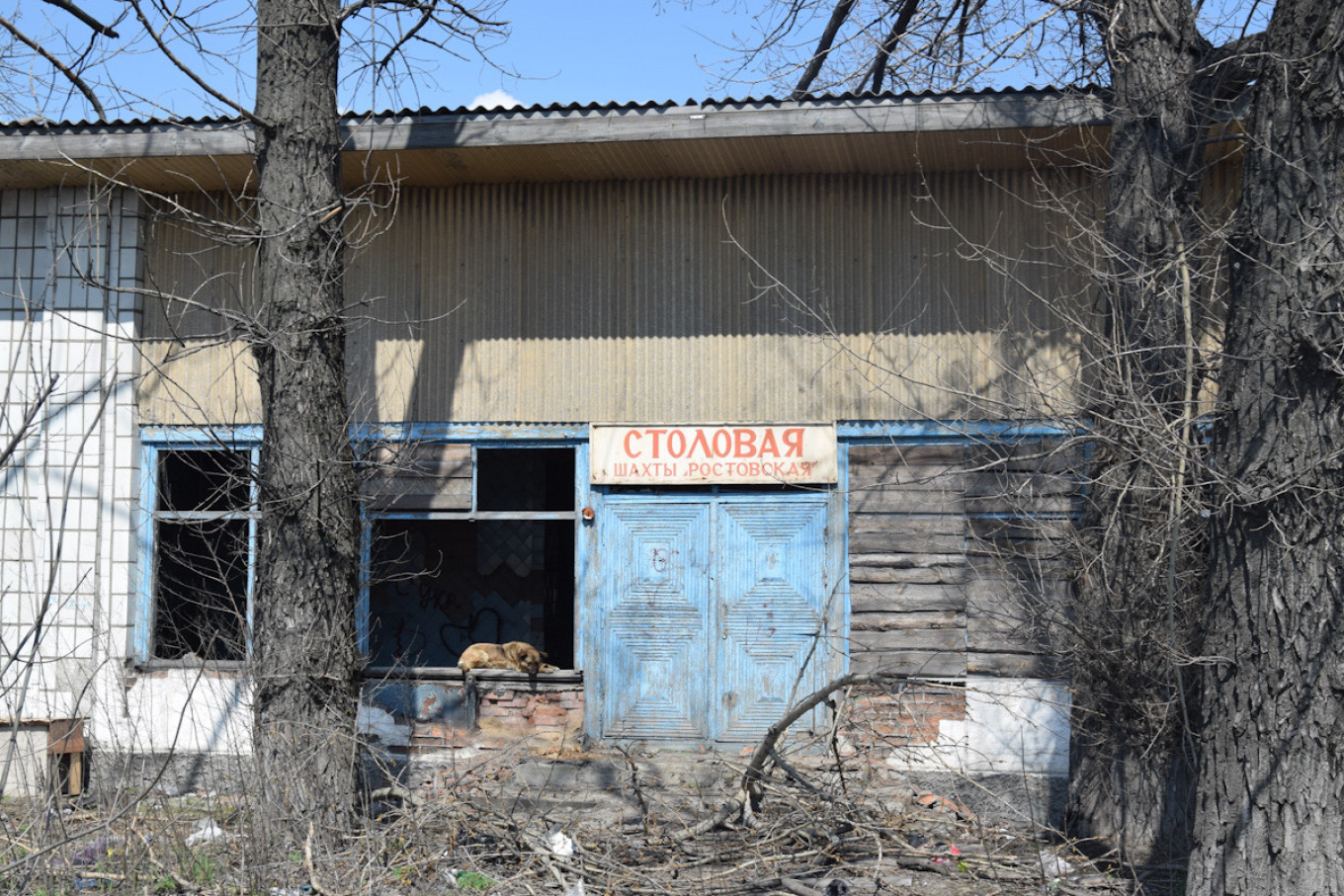
Miner Vitaliy Brasov was standing outside Gukova's last mine, Rostovskaya, smoking a cigarette at the end of his shift.
“Mining used to be the beating heart of this place, now the whole area is decaying,” he said.
Brasov drives to work every day from the Donetsk People’s Republic, where most coal mines closed following the start of the conflict. The number plates on the cars parked outside the mine indicate that he’s not the only one.
Most Russian miners from the Rostov region, Brasov said, have left to work in mines elsewhere in the country, where monthly wages are higher than the 30,000 rubles ($400) he earns.
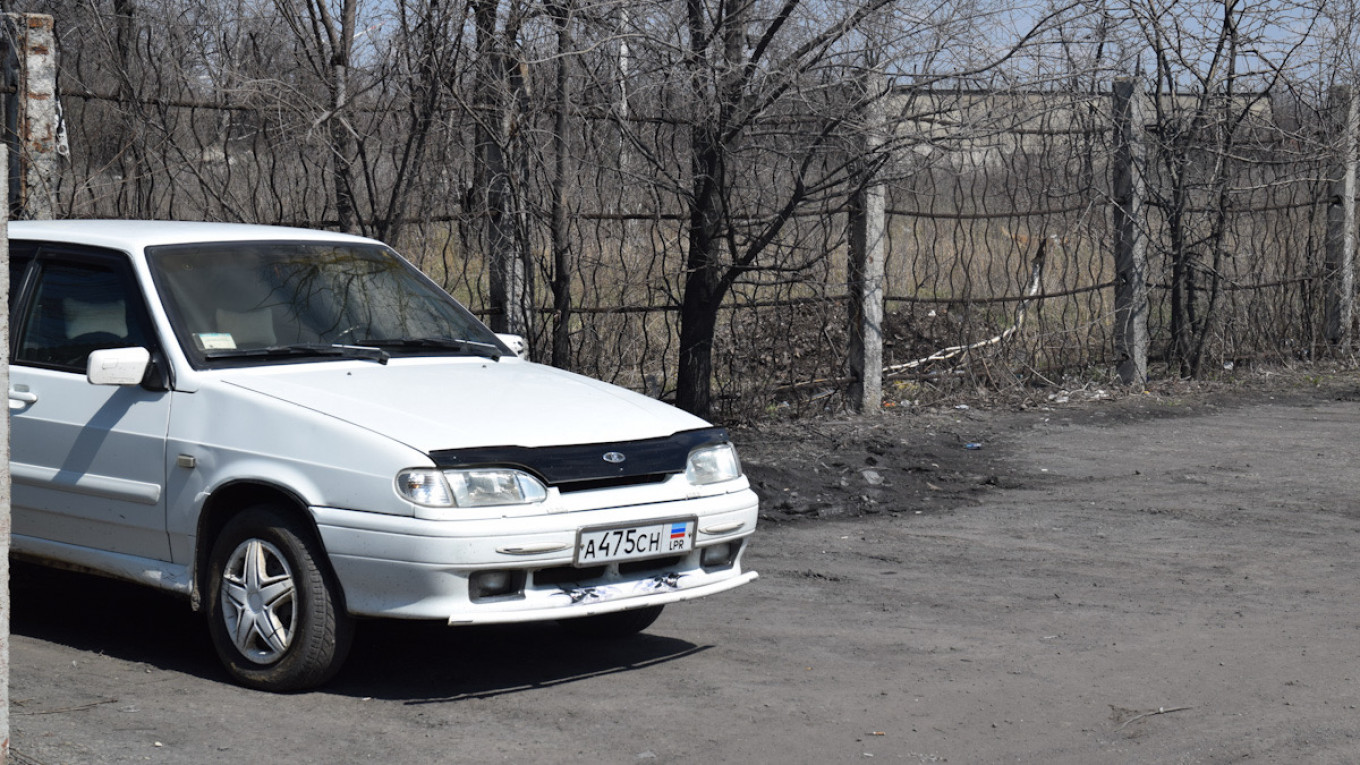
After stubbing out his cigarette, Brasov smiled and took his maroon-colored Russian passport from the pocket of his hoodie.
“Look at this! I am happy I finally have this,” he said.
Brasov is one of over 650,000 residents from Russian-backed separatist territories who recently received Russian passports under the Kremlin’s policy that aims to fast track Russian citizenship for the roughly 7 million citizens in the breakaway Donetsk and Luhansk People's Republics.
“I didn’t feel part of the new Ukraine anymore,” he added, saying he hoped the rest of his family would soon follow his example.
It is newly minted Russians like Brasov living in eastern Ukraine, that Putin has vowed to defend with force if the Kremlin decides that Ukraine is putting them at risk.
But will Russia actually escalate or is the military buildup part of what many believe to be strategic posturing?
Some in Gukovo, like local bus driver Evgeny, were enthusiastic about the Russian forces gathering at the border.
Citing growing “ultra-nationalism” and “fascism” among rulers in Ukraine — themes that have dominated state Russian news over the last seven years — Evgeny, who declined to give his last name, said he hoped the troops would “at last” bring the breakaway territories under Russian control.
“Putin knows what he is doing. It’s time to finish the job and make Donbass Russian,” he said.
Polls across Russia, however, show that while the country continues to support the annexation of Crimea, it is split about the future of southeast Ukraine and that roughly the same number of Russians would like to see it become part of the country (27%) as want it to remain part of Ukraine (28%)
Other polls have indicated that Russian’s enthusiasm for foreign adventures has decreased. In the past four years, the number of Russians who point to President Vladimir Putin's foreign policy as an asset has fallen by 10%, a recent study showed.
Carnegie Moscow Center analyst Andrei Kolesnikov said that Russian society as a whole, with the exception of its most aggressive representatives, is not ready to go to war.
Pointing to the controversial pension reform of 2018 as a turning point, Kolesnikov argued that Russians have shifted their focus to domestic issues.
“Since 2018 military campaigns have not mobilized the population to rally around the flag,” he said.
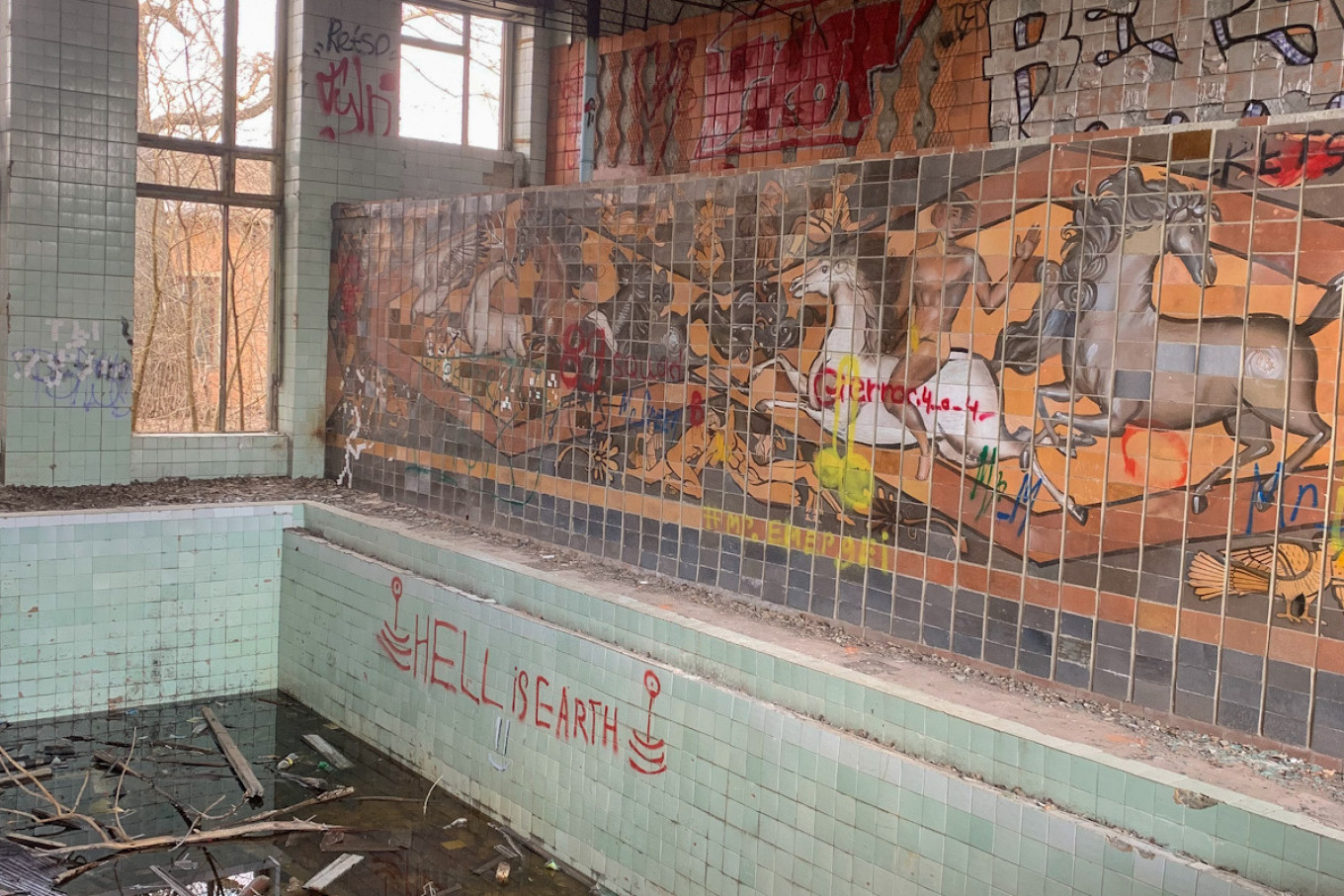
At the very western edge of town, bordering the checkpoints for the Donetsk People’s Republic lies the abandoned Vostochnaya mine, once one of the region’s crowning mines.
It went bankrupt in 2012 and is now strewn with broken bottles, cigarette ends and styrofoam cups. Within the complex, two young men sat dangling their feet over a small empty swimming pool. The Soviet mosaics that decorated it were covered with recent graffiti, including one reading "hell is earth."
“There isn’t really much to do around here,” said one of the men, who gave his name as Nikolai.
“Maybe a war would change that.”
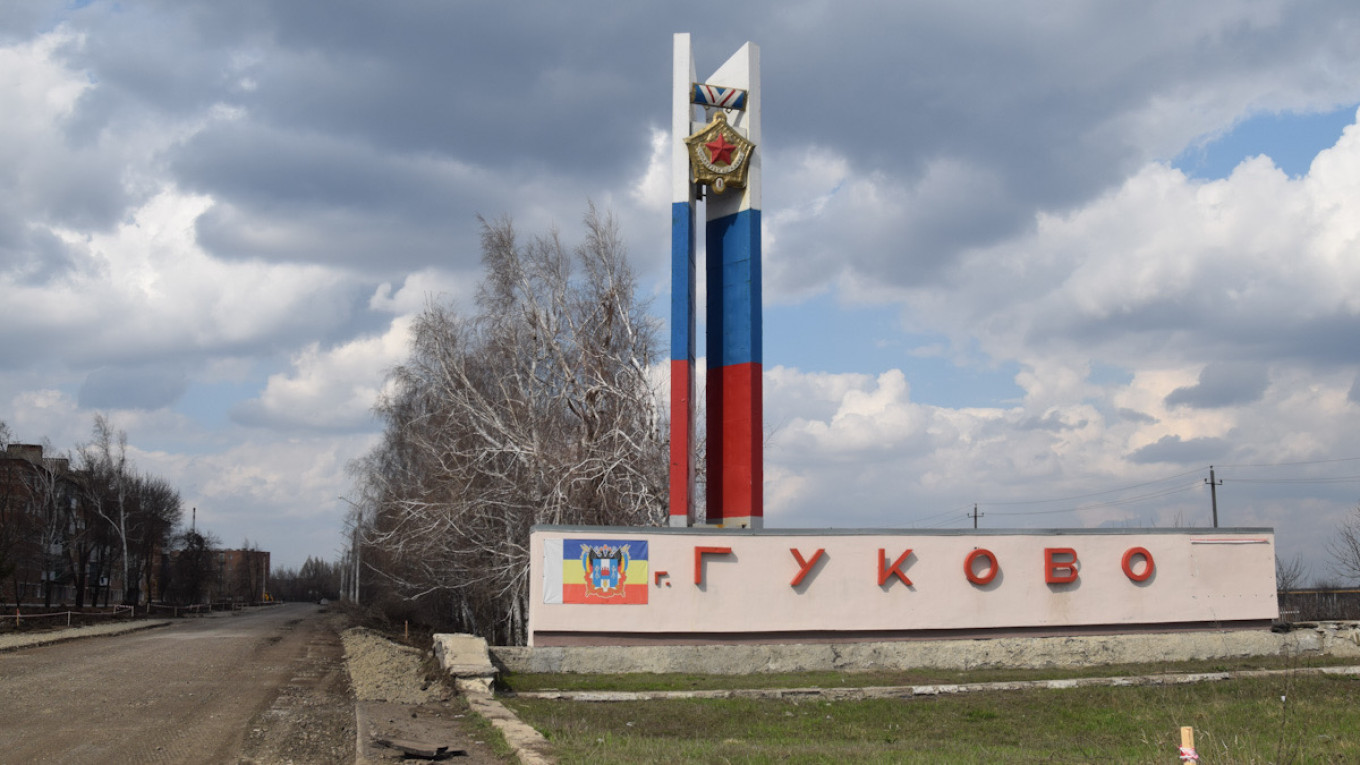
A Message from The Moscow Times:
Dear readers,
We are facing unprecedented challenges. Russia's Prosecutor General's Office has designated The Moscow Times as an "undesirable" organization, criminalizing our work and putting our staff at risk of prosecution. This follows our earlier unjust labeling as a "foreign agent."
These actions are direct attempts to silence independent journalism in Russia. The authorities claim our work "discredits the decisions of the Russian leadership." We see things differently: we strive to provide accurate, unbiased reporting on Russia.
We, the journalists of The Moscow Times, refuse to be silenced. But to continue our work, we need your help.
Your support, no matter how small, makes a world of difference. If you can, please support us monthly starting from just $2. It's quick to set up, and every contribution makes a significant impact.
By supporting The Moscow Times, you're defending open, independent journalism in the face of repression. Thank you for standing with us.
Remind me later.



